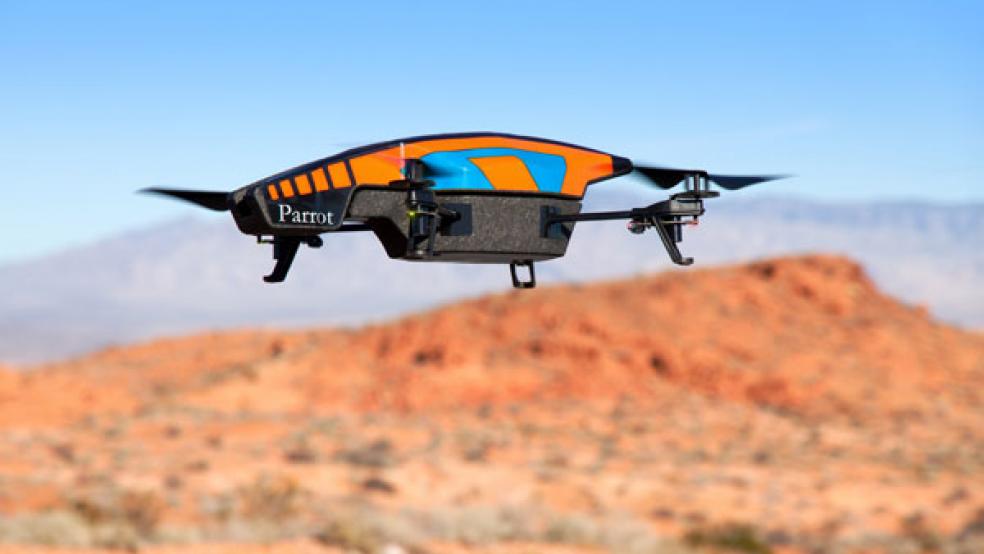In a field a few miles from Florida's Daytona Beach, some college students are flying drones. The scene is nothing out of the ordinary except these students are not doing it because it's their hobby, but because it's part of a course of study that will eventually earn them a bachelor's degree in, well, drones.
"What we've seen is an enormous interest for the program," said Alex Mirot, assistant professor of aeronautical science at Embry-Riddle Aeronautical University's Daytona Beach campus. "We started only three years ago with about 11 students and that has grown to about 230 students just in that three-year period."
Related: 10 Weird Uses for Drones
Embry-Riddle is one of a small but growing group of colleges and universities offering a degree in unmanned aircraft systems or UAS. The schools have launched the programs expecting a bump in demand for the engineers needed to design drones and operators needed to run them. This is because the Federal Aviation Administration faces a September deadline to propose rules that will allow some drones to be used commercially.
"Some people think that the commercial market for unmanned aircraft systems can be much bigger than the military market," said Steven Gitlin, vice president of marketing and communications of AeroVironment.
Based in Monrovia, California, AeroVironment makes small drones ranging from 3 to 13½ pounds. The drones are sold mostly to the military, in and outside of the United States, and are used primarily to gather information. Gitlin is expecting demand from the military to stay strong, but in anticipation of the new rules generating new business, the 700 person company is hiring.
"This fiscal year, which started on May 1st, we've already hired 50 new people," said Gitlin. "And we're looking to hire about 50 more."
Related: Trouble with Our Armed Drones in Yemen
In the U.S., it's mostly the military, the federal and local governments and some approved universities that can operate drones. Hobbyists can fly drones, but only those with remote controls Companies like Northrop Grumman that are contracted by the government, can operate unmanned vehicles too.
As the FAA looks to introduce drones into the crowded U.S. airspace, it has been issuing certificates of authorization, allowing a small number of approved firms to use drones on a limited basis. These drones can only fly as high as 400 feet and cannot be flown within five miles of an airport.
AeroVironment has been working for some of these firms, sending its drones over the North Slope of Alaska to gather data for major oil companies that drill there. A few police forces have been testing drones and CNN has been approved to use them for news gathering. Gitlin said drones are expected to be used extensively in the field of precision agriculture, with farmers using them for the targeted spraying of pesticides.
"We are also looking at applications like mining, like security, like wildlife preservation and monitoring," Gitlin said.
Related: 13 Coolest Drones You Can Buy
Once the FAA's rules for using drones commercially are approved, the Association for Unmanned Vehicle Systems International estimates the economic impact of the industry could reach $13.6 billion in the first three years, and climb to $82.1 billion by 2025.
Part of that impact will be the addition of 103,000 jobs, paying a minimum of $40,000 for those involved in manufacturing the drones, and more for the engineers and operators.
One of those future operators is Jessica Brown. The Cleveland native is a senior at Embry-Riddle. She fell in love with aviation watching the Blue Angels perform at air shows in her home town. She came to college planning to be a pilot, but now wants to work flying drones from the ground.
"If I can do anything with UAV's (unmanned aerial vehicles) I would love to do it, whether that's being the actual pilot or just sensor operator, working the camera and stuff like that," she said.
Related: Drones Could Cause the Next Mid-Air Disaster
Armed with coursework in aeronautical science including aerodynamics, and educated in areas specific to drones like remote sensing and unmanned systems operations, Brown is hoping to land a job with Northrop Grumman. Still, her potential field of employers could become much larger in the next few months.
"Right now we're working on rules for the largest part of the market, those are UAS that are less than 55 pounds," said FAA spokeswoman Allison Duquette. The proposed rules will likely be out in the near future, she said, then there will be a comment period and eventually the final rules will be approved.
Many other countries are already using drones outside the military. The U.S. has lagged because of concerns of how best to integrate drones into the country's already crowded airspace. Duquette said the FAA's proposals for operating drones will be a "staged" process, the agency won't flip a switch and give blanket approval for all kinds of companies to operate drones. They will be introduced slowly so that the agency can continually monitor the process to ensure the U.S. skies stay safe.
This article originally appeared in CNBC.
Read more at CNBC:
After-hours buzz: GoPro, Twitter, Expedia & more
Another way Alibaba's trying to crack the US
Obama wants to tax profits from overseas




